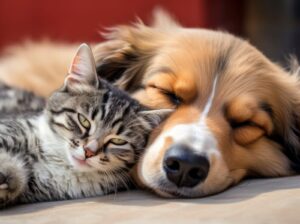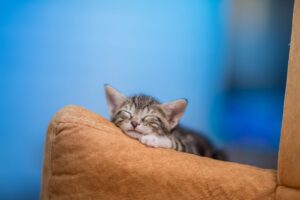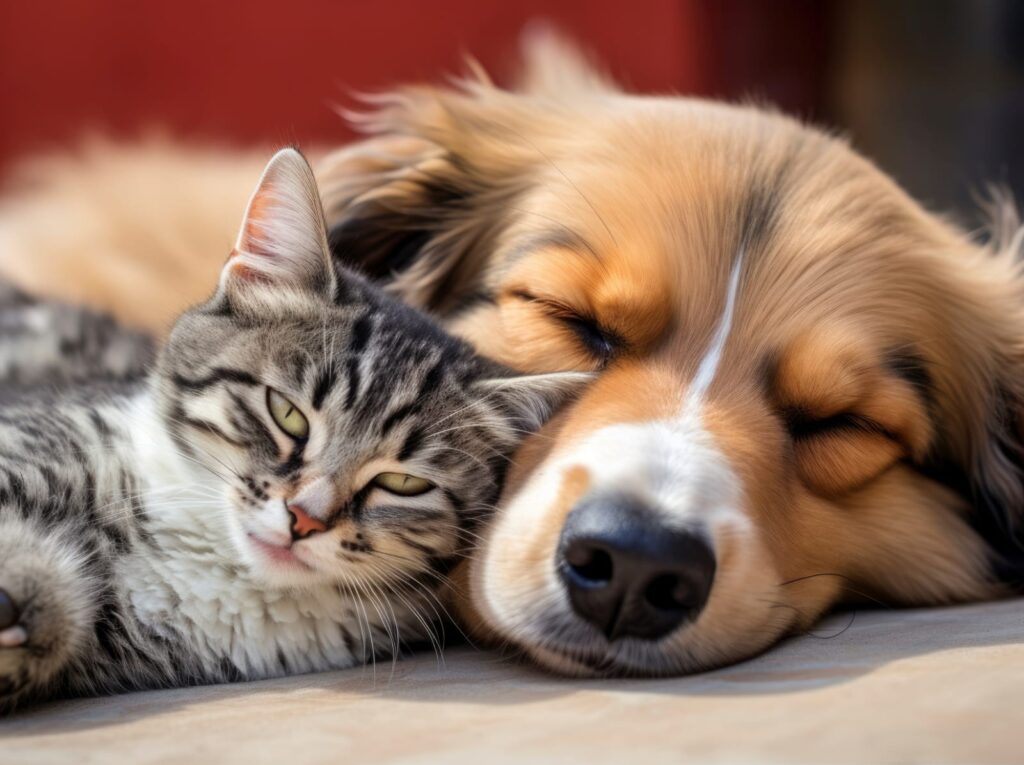Importance of pets sleeping

We humans place a high value on sleep, recognizing its crucial role in our overall health and well-being. But what about our furry companions? Do they also require ample rest for optimal health? The answer is a resounding yes! Just like us, there is importance of pets sleeping to function at their best.
Introduction: Why Sleep Matters for Your Pet?
Sleep is a fundamental biological process that allows the body to repair and rejuvenate itself. For pets, sleep serves several essential purposes:
- Physical Health: Sleep aids in muscle growth and repair, bone development, and the strengthening of the immune system. It helps pets recover from physical exertion and prevents injuries.
- Mental Health: Sleep is vital for cognitive function, memory consolidation, and emotional regulation. It helps pets process information, learn new things, and maintain a balanced mood.
- Behavioral Issues: Sleep deprivation can lead to behavioral problems in pets, such as aggression, hyperactivity, and anxiety. Sufficient sleep helps them stay calm and focused.

How Much Sleep Does My Pet Need?
The amount of sleep your pet requires depends on various factors, including age, breed, and overall health. Here’s a general guideline:
- Puppies and Kittens: Young pets need significantly more sleep than adults, often sleeping up to 20 hours a day.
- Adult Dogs: Most adult dogs sleep around 12-14 hours daily, with some breeds requiring more or less.
- Adult Cats: Cats are known for their napping habits, and they typically sleep for about 12-16 hours a day.
Remember, these are just averages, and individual variations are common. If you notice significant changes in your pet’s sleep patterns, it’s essential to consult with a veterinarian.
Signs of Insufficient Sleep in Pets
If your pet isn’t getting enough sleep, you may observe the following signs:
- Increased activity levels: Hyperactivity and restlessness can be indicators of sleep deprivation.
- Behavioral changes: Aggression, irritability, or anxiety may arise from lack of sleep.
- Decreased appetite: Sleep-deprived pets might experience changes in their eating habits.
- Health issues: A weakened immune system and increased susceptibility to illness can be consequences of insufficient sleep.

Creating a Sleep-Friendly Environment
To ensure your pet gets the restful sleep they deserve, create a comfortable and quiet sleeping area. Provide soft bedding, a cozy spot away from disturbances, and consider using calming aids like pheromone diffusers or calming music.
Additional Tips for Better Pet Sleep
- Regular Exercise: Physical activity helps tire pets out and promotes better sleep.
- Consistent Routine: Establish a regular sleep schedule for your pet to regulate their internal clock.
- Veterinary Checkups: Regular check-ups can help identify any underlying health issues affecting sleep.
- Limit Stimulants: Avoid excessive playtime or excitement close to bedtime.
Make an Investment in Your Pet’s Health by Making an Appointment at Animal Hospital of Aurora:
Don’t let a disease stop your pet from having experiences! Make an appointment for routine check-ups at the Aurora Animal Hospital. Our devoted staff provides thorough and empathetic treatment to ensure your precious family member continues to thrive. Reach out to us right now.
Conclusion:
By prioritizing your pet’s sleep, you’re investing in their overall well-being. A well-rested pet is a happier, healthier, and more enjoyable companion. So, pay attention to your furry friend’s sleep habits and create an environment that supports their restful nights.



